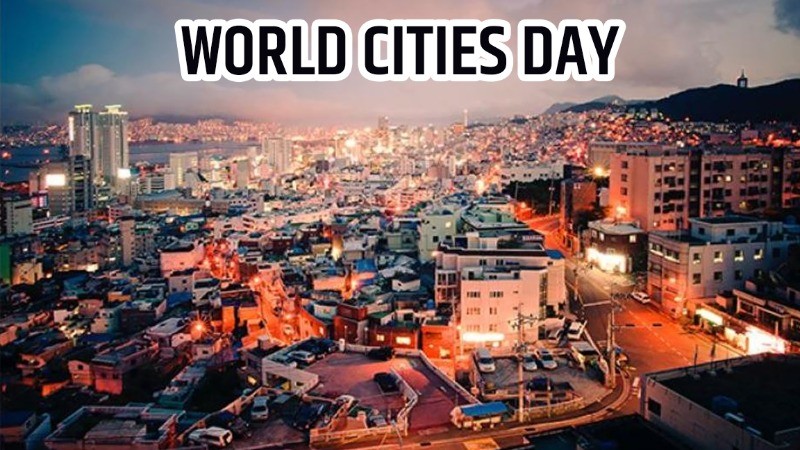
World Cities Day is observed annually on October 31, shining a spotlight on the crucial role of urbanization in achieving global sustainable development. This day serves as a reminder of the opportunities and challenges that urban environments present, encouraging nations to collaborate on solutions for sustainable urban growth. The observance aims to inspire individuals, communities, and governments to take actionable steps toward making cities inclusive, safe, resilient, and sustainable.
Importance of World Cities Day
The significance of World Cities Day lies in its focus on the interconnectedness of urbanization and sustainable development. As cities become increasingly populated, they become hubs for innovation, culture, and economic growth. However, urban areas also face challenges like overcrowding, pollution, and inadequate infrastructure. This day provides a platform to address these issues, promoting sustainable practices and fostering global partnerships.
Key Themes
Each year, World Cities Day adopts a specific theme related to urbanization. For instance, the 2023 theme was “Build Back Better,” emphasizing resilience in urban planning in light of the challenges posed by the COVID-19 pandemic. Themes encourage discussions on how cities can leverage their resources and strengths to improve urban life and enhance sustainability.
History of World Cities Day
The United Nations established World Cities Day in 2013 through the resolution A/RES/68/239. The General Assembly designated October 31 to underscore the importance of urbanization and to promote global efforts in sustainable development. The initiative was partly inspired by the New Urban Agenda, adopted at the Habitat III conference in Quito, Ecuador, in 2016, which aimed to encourage sustainable urban development worldwide.
Urban Population Trends
The trends regarding urban populations are staggering. By 2050, an estimated 70% of the world’s population will reside in cities, posing significant challenges and opportunities. The following statistics highlight the urgency of addressing urbanization:
Youth in Urban Areas: Around 60% of the urban population will be under the age of 18, necessitating focused efforts on education, employment, and youth engagement in city planning.
Environmental Concerns: The rapid urbanization trend contributes to environmental degradation, with cities accounting for approximately 70% of global carbon emissions.
Rural to Urban Migration: Many people migrate to cities in search of better opportunities, leading to increased demand for housing, transportation, and services.
Challenges Faced by Cities
Cities in the Global South are particularly affected by urban challenges, including:
As we celebrate World Cities Day on October 31, let us reflect on the profound impact urbanization has on our lives and the planet. By embracing sustainable development and fostering collaboration among nations, communities can create resilient cities that not only thrive economically but also safeguard the environment for future generations. The challenges may be significant, but with collective effort and commitment, we can pave the way for a sustainable urban future.
World Cities Day, Urbanization, Sustainable Development, Global South, Climate Change, Environmental Awareness.
MORE TO READ....